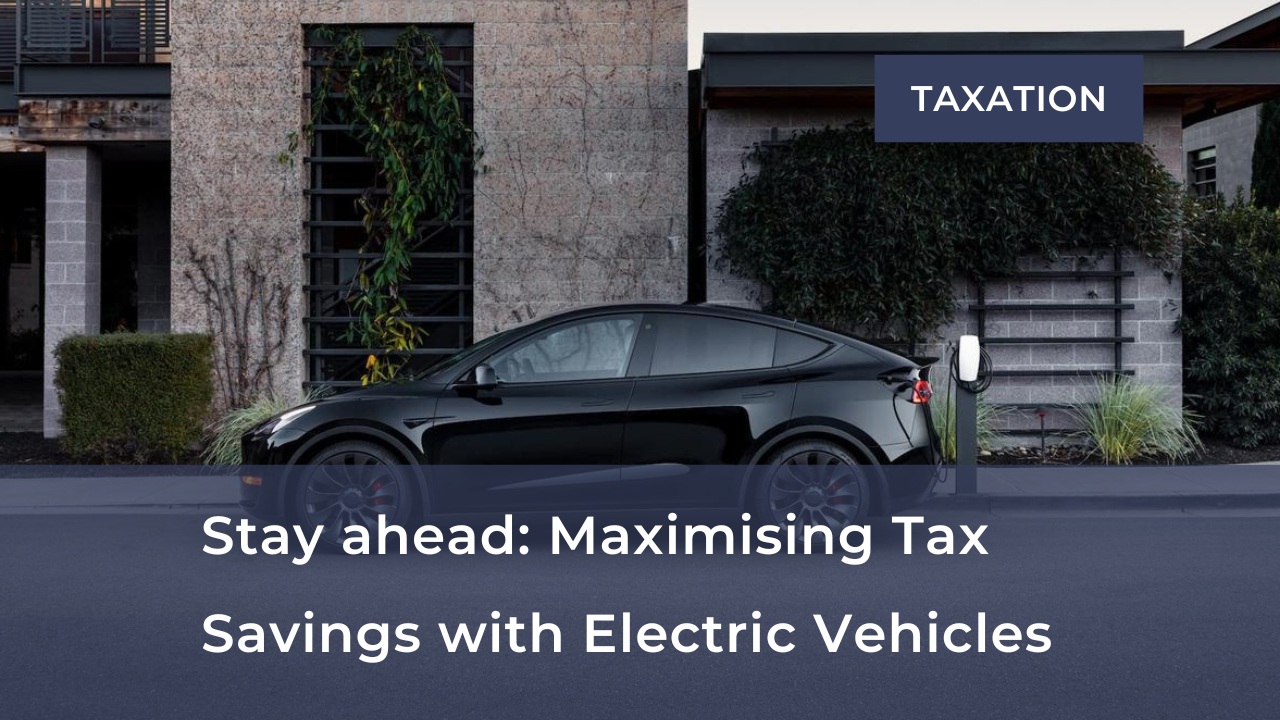NEW TAX EXEMPTIONS SHIFTS BUYER FOCUS
FBT exemption for electric cars
As Australia accelerates towards a greener future, we cover off everything you need to know on how tax laws are evolving for electric vehicles.
To encourage businesses to switch to electric vehicles for their company cars, the federal government introduced an EV FBT exemption for electric vehicles that were first held and used on or after 1 July 2022.
Key eligibility requirements:
> The car must be a zero or low emissions vehicle
> The car must be used by a current employee or their associates (such as family members)
> Luxury car tax (LCT) must have never been payable on the importation or sale of the car
Vehicles charged solely by an internal combustion engine (such as the early Toyota Prius) are NOT eligible for the EV FBT exemption.
How does tax apply to electric cars?
The purchase and running costs of zero or low emissions vehicles first held and used on or after 1 July 2022 are currently exempt from fringe benefits tax (FBT).
That means if your electric car is eligible, you do not need to pay FBT on it, or additional expenses associated with operating the car.
FBT exemption for electric cars
If your employer provides you with the use of a car that is classified as a zero or low emissions vehicle there is an FBT exemption that can potentially apply to the employer from 1 July 2022, regardless of whether the benefit is provided in connection with a salary sacrifice arrangement or not.
The FBT exemption should apply where:
> The value of the car is below the luxury car tax threshold for fuel efficient vehicles ($84,916 for 2022-23) when it was first purchased. If you buy an EV second-hand, the FBT exemption will not apply if the original sales price was above the relevant luxury car tax limit; and
> The car is both first held and used on or after 1 July 2022. This means that the car could have been purchased before 1 July 2022, but might still qualify for the FBT exemption if it wasn’t made available to employees until 1 July 2022 or later.
The exemption also includes associated benefits such as:
Registration
Insurance
Repairs or maintenance, and
Fuel, including electricity to charge and run the vehicle.
But, it does not include a charging station (see How do the tax rules apply to home charging units?).
While the FBT exemption on EVs applies to employers, the value of the fringe benefit is still taken into account when working out the reportable fringe benefits of the employee.
That is, the value of the benefit is reported on the employee’s income statement. While you don’t pay income tax on reportable fringe benefits, it is used to determine your adjusted taxable income for a range of areas such as the Medicare levy surcharge, private health insurance rebate, employee share scheme reduction, and certain social security payments.
FBT exemption exceptions
By its nature, the FBT exemption only applies where an employer provides a car to an employee. Partners of a partnership and sole traders are not employees and cannot access the exemption personally.
If you are a beneficiary of a trust or shareholder of a company, the exemption can only apply if the benefit is provided in your capacity as an employee or as a director of the entity (you need to be able to show you have an active role in the running of the entity).
Tax rules for home chargers
The ATO has confirmed that charging stations don’t fall within the scope of the FBT exemption for electric cars.
This means that FBT could be triggered if an employer provides a charging unit to an employee.
If an employee purchases a home charging unit then it might be possible to claim depreciation deductions for the cost of the unit over a number of income years if the unit is used to charge a vehicle that is used for income producing purposes.
However, if an employee is only using the vehicle for private purposes then the cost of the charging unit is a private expense and not deductible.
What about cost of electricity?
A friend of mine travels a lot for work and used to rack up large travel expenses…right up until he switched to an electric vehicle. Now it costs him 3 cents per km in electricity.
Because it is often difficult to distinguish home electricity usage, the ATO has set down a rate of 4.20 cents per km for running costs for EVs provided to an employee (from 1 April 2022 for FBT and 1 July 2022 for income tax).
Rate Applying To Fringe Benefits Tax Year Or Income Year Commencing On And AfterEV Home Charging Rate1 April 20224.20 Cents Per Km
If you use this rate, you cannot also claim any of the costs associated with costs incurred at commercial charging stations. It is one or the other, not both.
You also have the option of using actual electricity costs if you can calculate them accurately.
FBT law change around plug-in hybrid electric vehicles (1 April 2025)
The federal government is changing the rules around plug-in hybrid electric vehicles (PHEV), which will no longer be exempt from FBT from 1 April 2025.
This means only fully electric vehicles will be eligible for FBT from this date.
There is an exception for PHEVs that were purchased before 1 April 2025 and are under a financially binding agreement, such as a lease that ends after the rule change. However, any extension of the agreement (for example, if the lease was extended for another two years) is not eligible for the EV FBT exemption and it would be subject to FBT once the original lease expires.
EVs eligible for an FBT exemption
There’s an extensive list of vehicle brands and models eligible for the electric vehicle exemption, but some of the common manufacturers are:
Tesla
BYD
Kia
Hyundai
MG
Polestar
Individual models may be subject to the luxury car tax, so you will need to confirm at the time of purchase that the price is below the LCT threshold of $89,332.
BE THE FIRST TO KNOW
Subscribe to receive future reports.
Complete the form below to receive timely and insightful information directly to your inbox.


